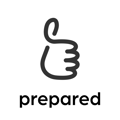Und wie mobile Technologien eine neue Ära ermöglichen
Kurz gesagt
Die größten Herausforderungen sind Zeitmangel, fehlendes Feedback und mangelnde pädagogische Kontinuität. Kompetenz ist nicht sichtbar. Kompetenzbasierte medizinische Ausbildung, einschließlich programmatischer Bewertung und EPAs, bietet eine solide Methode zur Kompetenzbewertung.
Globaler Kontext
Die Pandemie hat nicht nur gezeigt, wie abhängig wir von bestimmten medizinischen Spezialgebieten sind, sondern auch, wie selten einige Kompetenzen in der Bevölkerung verteilt sind. Um diese Kompetenzen zu stärken, müssen wir unsere Ausbildungsmethoden für die Spezialisten von morgen optimieren.
Auszubildende
Auszubildende in der medizinischen Ausbildung durchlaufen einen langen Weg, der selten geradlinig ist. Während der Ausbildung wechseln ihre Supervisoren ständig, sodass kaum eine unterstützende, langfristige Ausbildungsbeziehung aufgebaut werden kann. Durch Redundanzen führt dies zu ineffizientem und ineffektivem Unterricht. Da Auszubildende ihre Kompetenz nicht nachweisen können, werden sie in einigen Bereichen überbehütet und in anderen allein gelassen. Die erste Situation untergräbt die Motivation der Auszubildenden und die letztere kann eine Gefahr für die Patientensicherheit darstellen.
Supervisoren
Supervisoren, die sowohl ausbilden als auch hochwertige medizinische Versorgung leisten, haben oft Schwierigkeiten, Zeit für angemessene Supervision und aussagekräftiges Feedback zu finden. Zusätzlich zu den knappen Ressourcen können sie ihren Unterricht oder ihre Supervision nicht auf die Bedürfnisse der Auszubildenden zuschneiden, da die Kompetenz der Auszubildenden nicht sichtbar ist.
Krankenhäuser und Organisationen
Die Bereitstellung hochwertiger Gesundheitsversorgung in unseren Krankenhäusern hängt von kompetenten Spezialisten ab, aber ein großer Teil der Bemühungen zur Unterstützung ihrer Ausbildung ist Verwaltungsarbeit. Die Dokumentationstools sind noch recht statisch und dienen meist Kontrollzwecken. Weder werden die dokumentierten Kompetenzen für Echtzeit-Entscheidungen über die Übertragung von Verantwortung während einer Patientenbegegnung genutzt, noch helfen die Daten den Auszubildenden, sich als Fachleute weiterzuentwickeln.
Silberstreifen am Horizont
Doch wir stehen am Beginn einer neuen Ära. Der Aufstieg mobiler Geräte und digitaler Technologien bietet neue präzise Möglichkeiten, Bewertungsdaten am Arbeitsplatz in Echtzeit zu dokumentieren und zusammenzufassen. Mit der kompetenzbasierten medizinischen Ausbildung (CBME) findet weltweit ein Paradigmenwechsel statt, um Kompetenz in den Mittelpunkt zu rücken. Ein organisierender Rahmen und EPAs bieten einen Rahmen, um REALE Kompetenz im klinischen Umfeld zu bewerten. Kombiniert ermöglichen diese Entwicklungen, Auszubildenden zu helfen, Kompetenz entlang einer klaren und sichtbaren Trajektorie zu entwickeln, mit dem Ziel, effizient Expertise zu erreichen.
